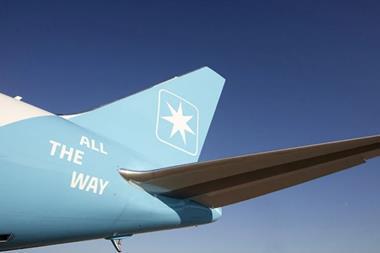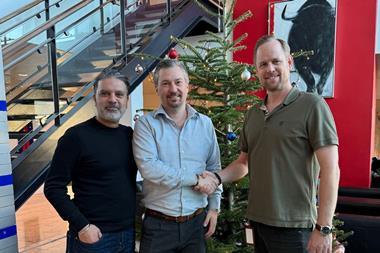IATA will meet next week with representatives of the Washington air cargo security community to safeguard a mutual recognition agreement between Europe and the US that is currently “under jeopardy”.
The mutual recognition agreement (MRA) means that cargo being transferred or transited through the European Union (EU) is not subject to screening or new security controls before it goes to the US, unless there is specific intelligence relating to a shipment.
Global airlines’ body IATA estimates that this reciprocal arrangement saves European airlines up to €600m a year, a figure which climbs to €1bn if non-European carriers are included.
Gordon Wright, head of cargo border management at IATA, said that the current MRA between Europe and the US is “under jeopardy” because of concerns raised by the Transport and Security Administration (TSA) in the US.
Discussions between the TSA and the European Commission regulator in Brussels have taken place for some six months and are not linked to the downing of a Russian Metrojet passenger aircraft by a suspected bomb as it flew from Egypt to St. Petersburg.
Said Wright: “The TSA has raised some concerns about the EU’s cargo security programme. Those concerns have resulted in airlines which benefit from the MRA being given an extension to those benefits, as opposed to having a long standing guarantee that they will receive them.”
On the cost-saving issue, Wright continued: “You can see why we are extremely concerned that this major agreement may be put in jeopardy.
“We are working very closely with the US and European Commission at the moment to address some of those concerns.
“We have made a number of suggestions to both parties, and when we met with the commission at the end of the summer we made them aware of the detrimental effect of pulling this MRA.”
Wright said that crux of the concerns by the US authorities relate to the EU’s ACC3 security rules for incoming cargo and mail which entered into force in 2014. The programme includes regulated agents (RA3s) and known consignors (KC3s) that undertake security measures on behalf of the airlines.
The TSA believes that the validation process needs to be looked at again in terms of the level of oversight by regulators when they are undertaking security controls and giving accreditation to KC3s and RA3s in non-EU countries.
IATA has put forward two suggestions to the TSA and Brussels as part of a “confidence building process” and a way to establish mutual best practice on both sides of the Atlantic.
Said Wright: “Oversight for these RA3s and KC3s is undertaken by European regulators. We have suggested to both administrations that it would be useful to start taking US regulators on European validations, and vice versa, so that they can be confident that the measures and criteria being applied are robust.
“Another benefit is any best practice from either party can be introduced into the programme.”
IATA will also offer to host a database of KC3s and RA3s, which would be made available to both regulators.
There is a tight timescale. The current MRA between the US and the EU means that airlines have an extension up to February of next year.
Said Wright: “We are hopeful that there will be a further extension, but it is quite clear that the MRA will need to be amended in some ways, in order to take account of some of the concerns raised.
“Our primary objective is to make sure that any new measures are proportional and do not have a detrimental impact on the industry which is getting quite significant benefits out of this.”









